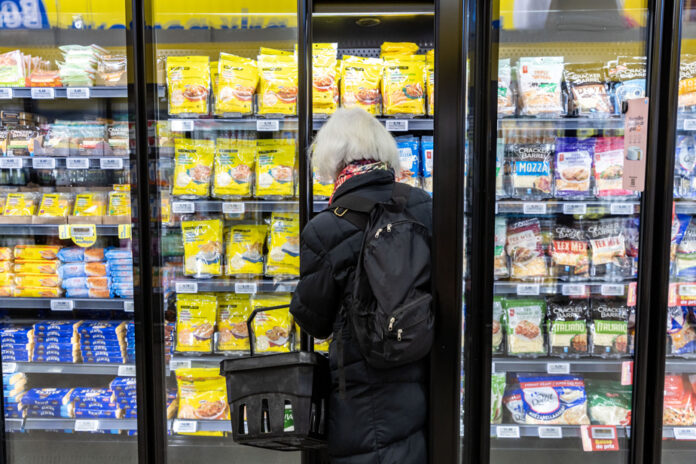If further proof was needed that consumers are concerned about the rising cost of food, a new study concludes that when it comes to grocery shopping, the hunt for deals continues to be a big motivator for most people. But this increase also motivates the reduction of food waste for a large part of the population who simply no longer want to put their food – and their money – in the trash.
The end of a year brings its share of assessments and forecasts for the one to come. This time, it’s the Agri-Food Analytical Sciences Laboratory at Dalhousie University, in partnership with Caddle, which is providing us with some predictions on what might (or might not) end up on our plates next year.
And one thing should be there for many people: leftovers, since reducing food waste is on the priorities of many Canadians. Almost one in two respondents say they want to better plan their meals and grocery list, while 36% of participants intend to eat more leftovers next year.
Surprisingly, “food rescue” in general, whether through an app or buying less fresh produce on sale at the store, is still not very popular. Only 7% of survey participants say they want to practice it in 2024. Researchers at Dalhousie University surveyed 5,000 Canadians to arrive at these conclusions.
Still in the desire to waste less, one in four Canadians intend to focus on foods that have a longer shelf life and an even greater proportion, 33%, will freeze or even can their food to ensure they do not not lose them. In fact, 13% of people want to cook more.
“This year’s results reveal a significant shift in the way Canadians approach their food choices, with a greater emphasis on sustainability, health and local sourcing,” said the Lab’s research director, Janet Music, who sees this as “a growing consumer awareness of the broader impacts of their food decisions.”
The latest consumer surveys show that people are already looking for deals at the grocery store; this habit will only increase since it is the main habit that Canadians want to change (increase attention to sales and promotions), in addition to using coupons and taking advantage of their loyalty programs. grocery stores.
The vast majority, eight out of ten, believe that prices will continue to increase at the grocery store. Remember that the same university recently calculated that you will have to spend $966 more next year to buy groceries, in its Report on Food Prices for 2024 in Canada (produced in partnership with other institutions).
Moreover, it is the price that guides the choice of a new food retailer for 78% of consumers. Quality still matters (51%), as does proximity (43%).
The fact remains that the rise in prices imposes choices for many who expect to reduce their purchases in certain categories, especially snacks and prepared meals, but also meat. 31% of participants in this study expect to buy less meat next year. Alcohol is also among the expenses that many (28%) expect to reduce, a trend that has already begun here since the Société des alcools du Québec revealed last September that the value of its average shopping basket is decreasing .
Finally, very bad news for restaurateurs who are already seeing drops in traffic. According to this study, almost four in ten people want to go to restaurants less often next year and 12% intend not to go at all.





